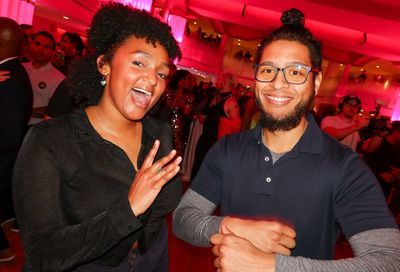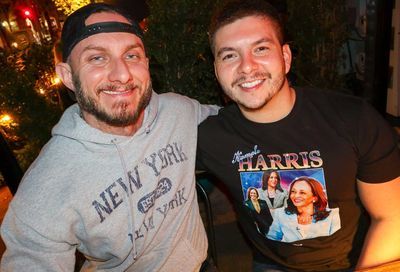Work Ahead for Marriage
Illinois is not a defeat, but a wake-up call
When the Illinois marriage-equality bill was not brought up for a vote on May 31, anti-gay obsessives like Brian Brown of National Organization for Marriage crowed as if they had defeated SB10 and turned back the Gay Menace. This was reinforced by gay activists’ anger at their suddenly dashed expectations. In fact, Illinois House Speaker Michael Madigan extended the deadline for the bill through August; it may be taken up in a special session.
To treat one setback as a reversal of the pro-gay historical trend is like treating a winter storm as disproving global climate change. It is, rather, a stern reminder that we must work for our gains. Part of that is critical self-assessment.
By self-assessment I do not mean opportunistic point scoring. Log Cabin Republicans leader Gregory Angelo took the occasion to slam Democrats, despite only two out of 47 Illinois House Republicans having pledged support for SB10. Please. There was no outcry over Republican opponents because no one expected any better from them.
The shortfall in House support contradicts the exaggerated claim of gay political power made by conservatives like Chief Justice John Roberts. That claim is doubtful, as Laurel Ramseyer at Pam’s House Blend observes, “Even in ‘blue’ Illinois.” The notion that we don’t need constitutional protection is ludicrous, given our long struggle just to win marriage in one-fourth of the country.
Some gay pundits, like John Aravosis of Americablog, wasted no time in leaping to a race-based analysis, fingering the Black Caucus and black ministers for a loss that had not yet happened. Did we learn nothing from the hasty, ill-informed scapegoating after Prop. 8? Statistician Nate Silver refuted that stunningly counterproductive narrative in November 2008.
A few thoughts come to mind.
One: If you talk about anti-gay black ministers without mentioning pro-gay black ministers, or prominent opponent Cardinal Francis George (who compared the Gay Pride Parade to the Ku Klux Klan, though he later apologized), then you need to check your biases.
Two: We need to learn lessons and apply them, not start an insult match.
Three: So you’re angry. The question is what to do – likely a mix of changes in spending priorities; better use of allies; better use of data; better matching of message and messenger with the right audience; a new lead sponsor; and a stronger grassroots effort led by people familiar with the local terrain.
As David Badash of The New Civil Rights Movement noted, blaming the Black Caucus or black ministers “is exactly what NOM, the National Organization For Marriage, wants to happen.” Why take the bait? Badash adds, “It’s time we built bridges with other communities instead of trying to deflect blame onto them.” Besides, our communities overlap. Into which balkanized category would you place Mark Carson, the black gay man murdered last month in New York?
Passion motivates us, but smart answers require cool-headed analysis. We need to be clear-eyed, disciplined and tenacious. “Ready, fire, aim” is no strategy.
The deadline extension is an opportunity for a course correction. Rick Garcia, policy director for The Civil Rights Agenda, said of the May 31 meltdown, “This is what happens when you allow a multi-billionaire and national organizations that have no clue about Illinois politics and how Springfield works to call the shots.” The billionaire is Fred Eychaner, the major donor to Illinois Unites for Marriage. Garcia, a longtime Illinois activist, called for replacing high-priced consultants and lobbyists with “real people standing up and speaking out.” You cannot outsource community building.
Wisdom is noticing and repeating what works. Strong interracial and interfaith coalition efforts helped produce marriage equality victories in D.C. and Maryland. Listening, learning and nurturing trust can create bonds that withstand the windiest of cities.
Richard J. Rosendall is a writer and activist. He can be reached at rrosendall@starpower.net.
Support Metro Weekly’s Journalism
These are challenging times for news organizations. And yet it’s crucial we stay active and provide vital resources and information to both our local readers and the world. So won’t you please take a moment and consider supporting Metro Weekly with a membership? For as little as $5 a month, you can help ensure Metro Weekly magazine and MetroWeekly.com remain free, viable resources as we provide the best, most diverse, culturally-resonant LGBTQ coverage in both the D.C. region and around the world. Memberships come with exclusive perks and discounts, your own personal digital delivery of each week’s magazine (and an archive), access to our Member's Lounge when it launches this fall, and exclusive members-only items like Metro Weekly Membership Mugs and Tote Bags! Check out all our membership levels here and please join us today!





















